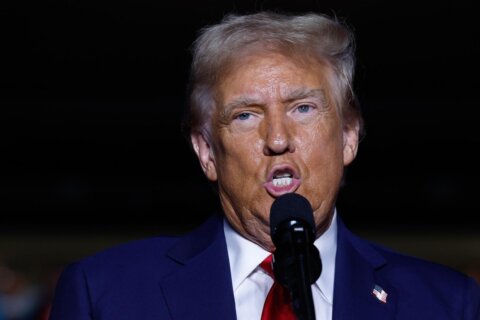WASHINGTON — Earlier this year, you couldn’t find a list of presidential election “battleground states” that didn’t include Virginia.
What a difference an actual campaign makes.
Hillary Clinton leads Donald Trump in the commonwealth by anywhere from 8 percent to 13 percent in recent polls. The Real Clear Politics Poll Average gives her an 11.2 percent lead. A Roanoke College poll released Tuesday shows Clinton with a 16 percent lead when Libertarian Gary Johnson and Green Party candidate Jill Stein are included, a 19-point lead in a two-way race.
On the other hand, “it’s difficult to write off a state that should be a battleground — like Virginia,” said Geoffrey Skelley, associate editor of Larry Sabato’s Crystal Ball at the University of Virginia Center for Politics.
Skelley said the race for Virginia, and every other state, is not over.
“A lot of people talk about this election as if Clinton has it locked up,” he said. “If the economy starts sliding a bit, if President Obama’s approval rating starts sliding, if more bad things come out about Clinton and her emails, those are things that could move this race and make it tighter — and give Trump a better chance of winning.”
But to win a state, you have to compete in that state. And there’s little evidence that Trump intends to spend resources in Virginia. The campaign’s rolling out new TV ads to play in Ohio, Pennsylvania, Florida and North Carolina — states vital to a Trump victory.
After initially reporting that Virginia was also on that list, CNN now reports the campaign says that won’t happen.
As for one sliver of hope for the Trump campaign: Politico points to figures that show Republicans gaining ground in signing up new voters in some battleground states.
But Skelley said it could be just a case of people making official what they’ve been doing for years: Voting Republican despite what it says on their voter registration cards. He specifically pointed to Southwestern Pennsylvania.
“That area has been trending very sharply Republican in recent presidential elections, but still had decently large Democratic registration numbers,” he said. “So you wonder if it’s a lagging effect.”





